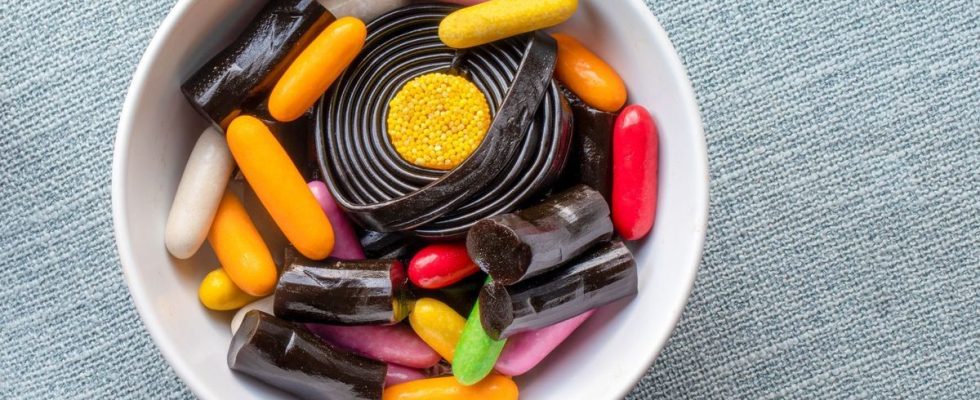Published on
Updated
Reading 2 mins.
According to the National Health Security Agency, consuming high doses of liquorice could be dangerous for your health. It can lead to serious poisoning, even death, including in healthy people.
Candies, beers, ice creams, syrups, snacks… Liquorice is present in many everyday products. And for good reason: with its slightly aniseed taste, it seduces all palates. But it is not as harmless as it seems. According to the National Health Security Agency (Anses), it can lead to serious or even fatal poisoning.
High blood pressure and heart disorders
In its press release, ANSES reveals that 64 people were poisoned between 2012 and 2021 following the consumption of liquorice-based drinks or foods.
In 42% of cases, the victims presented serious symptoms: high blood pressure, heart problems caused by too high a potassium level in the blood…sometimes going so far as to be life-threatening. One death was even recorded in a person with severe liver damage.
In question, one of the components of licorice root, glycyrrhizin.
This one”is used in many products such as candy, chewing gum, snacks, baked goods, ice cream and sorbets“, specifies ANSES.
Some medications seem to increase the toxic effects
The organization advises, therefore, to limit its consumption of liquorice-based products.
“Consuming large amounts of foods containing licorice on a regular basis can cause serious symptoms, including in healthy people who have never had high blood pressure.“, she specifies.
Another important point: some drugs seem to increase the toxic effects of licorice. Indeed, some diuretics would cause “a loss of potassium through the urine, which glycyrrhizin will aggravate“.
NO to diets, YES to WW!
Do not exceed “10 milligrams per day of glycyrrhizin”
It is difficult for the consumer to know if his consumption is excessive. The presence of liquorice is specified in the composition of the food and/or by a statement, but the maximum recommended daily amount is not always.
ANSES recommends reading labels carefully and not exceeding “10 milligrams a day of glycyrrhizin”. To do this, care must be taken not to multiply the sources of intake through food, drugs or tobacco products. Finally, it is advisable to avoid continuous consumption of products containing liquorice.
